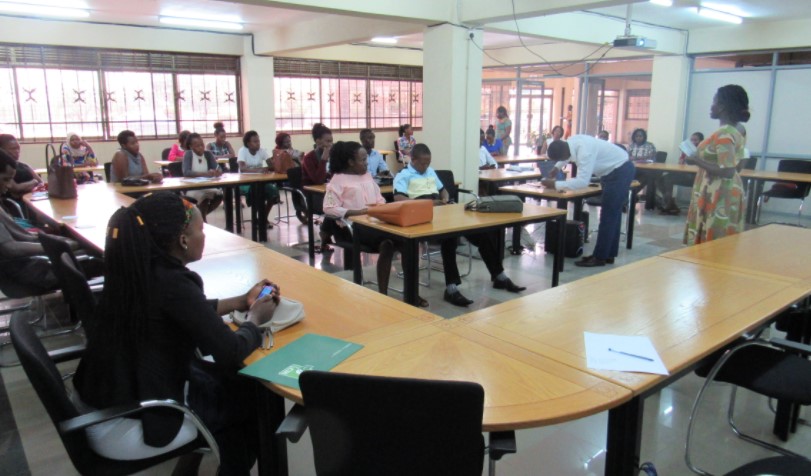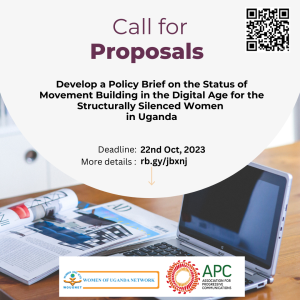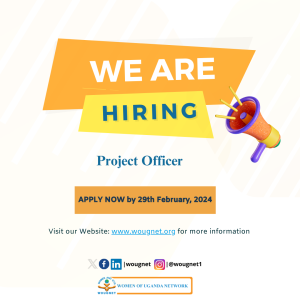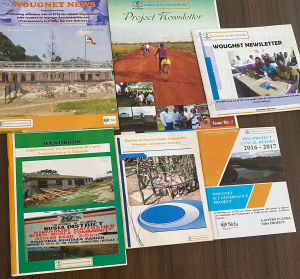On the 21st march 2019, during the youth 4 polciy public dialogue and the launch of the second cohort fellowship that was held at Sheraton hotel in Kampala by KAS Uganda in partnership with Centre for Development Alternatives (CDA) and Public Policy Institute (IPP), offered a platform for 8 youth4policy fellows to present and discuss their policy research. It was noted that public policy was not realizing their outcomes and it was seen that there was need to apply political policy analysis in order to influence policy processes and identify entry points to influence the policy outcomes since non state actors do a lot of policy research.
Youth4policy programme which is aimed at empowering the next generation of policy influencers was advised to include women in politics and young people considering the fact that young people are more aware of the responsibilities that come with a privilege since they have something to offer because of their education and experience in policy.
Mr. Henry Mbaguta, the Commission Financial Services- Ministry of Finance, Planning and Economic Development while giving a key note address at the public dialogue, gave an insight on the opportunities and constraints for youth in influencing public policy in Uganda, cited that financial services need a lot of policy debate. As Uganda has one of the youngest population in the world, with youth experiencing high rate of youth unemployment leading to criminal activities, policies should be designed to respond to such challenges for the social and economic transformation of the country although youth are still facing challenges that constrain them to participate in policy processes such as their mindset and failure to address challenges in the societies. He urged for youths’ perspective to be mainstreamed in policy, establish platforms such as youth platform and participate in the implementation of approved policies. He advised Youth4Policy programme to work together with the government in order to achieve youth’s participation in policy. He also encouraged youth to take advantage of ICT, it being an enabler and engage at every level but with evidence because with (it) evidence they can influence policy.
During a panel discussion moderated by the director of CDA, Yusuf Kiranda, Malcom Mpamizo one of the Youth4Policy fellows said that young people can produce quality evidence because there is a lot more that the young people can do than at their age. He further posed a question to the audience on “how are we going to build a critical mass on how youth can influence public policy?” Reacting to the posed question, a participant pointed out that there is lack of representation by young people with disabilities in public policy and unwillingness to give young people space to influence the policy. Responding to that too, Mr. Henry Mbaguta supplemented that young people must consider;
- The capacity to give evidence.
- The cost because getting evidence is not cheap.
- The presentation; Are there opportunities to present these evidence?
- The training
- The issues of resources because they are scarce.
- Having proactive interventions to marginalized, the excluded is very important.
- The education.
According to Oxfam Great Britain, that has for years become an experienced and effective advocate of evidence-informed policy change, offering lessons for building effective action. Insights which were combined from policy studies with specific case studies of Oxfam campaigns to describe four ways to promote the uptake of research evidence in policy: (1) learn how policy making works, (2) design evidence to maximize its influence on specific audiences, (3) design and use additional influencing strategies such as insider persuasion or outsider pressure, and adapt the presentation of evidence and influencing strategies to the changing context, and (4) embrace trial and error.
Duncan Green in his article of Using evidence to influence policy: Oxfam’s experience, cited that the use of evidence for policy influencing has many ingredients such as a robust evidence base, framing and persuasion, simple storytelling, building coalitions, learning the rules of the game in many different systems, the use of complementary influencing strategies, and a process of continuous reflection and change in light of experience and context.
Young people need to take advantages of the powers that they have to influence public policy with evidence considering the large numbers of youth in Uganda.
Compiled by: Sandra Aceng Program Officer Gender and ICT Policy Advocacy






